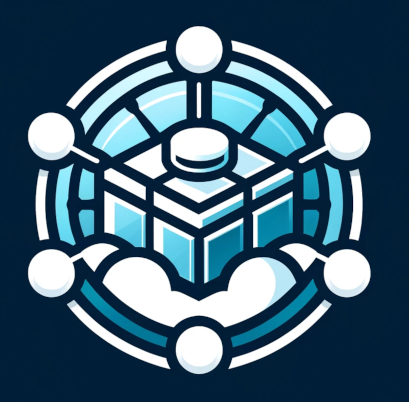K8S-101

| Formats: | Asynchronous |
| Blended | |
| Online | |
| Onsite | |
| Part-time | |
| Level: | Intermediate |
| Prerequisites: | |
| Recommended Knowledge | |
| Knowledge of containers | |
| Basic Linux skills | |
| Basic networking knowledge | |
| Understanding of Cloud computing concepts | |
Formats: We offer our training content in a flexible format to suit your needs. Contact Us if you wish to know if we can accommodate your unique requirements.
Level: We are happy to customize course content to suit your skill level and learning goals. Contact us for a customized learning path.
Kubernetes Administration (K8S-101)
Welcome to our Introduction to Kubernetes course, a comprehensive program designed to equip you with the foundational skills and knowledge necessary to navigate and utilize Kubernetes effectively. This course delves into the core concepts and components of Kubernetes, from understanding its architecture and setting up your environment to deploying, managing, and scaling containerized applications. Through a blend of theoretical lessons and hands-on labs, you will learn how to orchestrate container workloads seamlessly, implement best practices for configuration and deployment, and troubleshoot common issues encountered in a Kubernetes environment. Whether you are new to containerization or looking to solidify your understanding of Kubernetes, this course provides the essential training needed to master this powerful orchestration platform.
Target Audience
This course is tailored for IT professionals, software developers, system administrators, and DevOps engineers who are eager to enhance their skills in container orchestration using Kubernetes. If you have a basic understanding of containerization and are familiar with Docker, Linux command-line operations, and basic networking concepts, you will find this course particularly beneficial. The program is also ideal for cloud architects and technical leads who wish to adopt Kubernetes in their infrastructure to improve application deployment efficiency and scalability. Whether you are transitioning from traditional IT roles or looking to advance your career in cloud-native technologies, our Introduction to Kubernetes course provides a structured and supportive learning path.
Job Opportunities
Completing our Introduction to Kubernetes course opens up a wide range of career opportunities in the rapidly evolving tech landscape. Proficiency in Kubernetes is highly sought after in roles such as Kubernetes Administrator, DevOps Engineer, Cloud Engineer, and Site Reliability Engineer (SRE). Many organizations are adopting Kubernetes to streamline their development processes and manage large-scale containerized applications, making Kubernetes expertise a valuable asset. Additionally, knowledge of Kubernetes can enhance your credentials when applying for roles in cloud-native development, microservices architecture, and IT operations. By mastering Kubernetes, you position yourself at the forefront of modern IT practices, ready to tackle the challenges of dynamic application environments and contribute to the success of forward-thinking tech companies.
Course Outline
Module 1: Introduction to Containerization and Kubernetes
1.1 Understanding Containerization
- Introduction to containers
- Differences between virtual machines and containers
- Benefits of containerization
- Overview of Docker
1.2 Introduction to Kubernetes
- What is Kubernetes?
- History and evolution of Kubernetes
- Key features and benefits
- Kubernetes architecture overview
Module 2: Kubernetes Core Concepts
2.1 Kubernetes Architecture
- Master node and worker nodes
- Key components: API server, etcd, controller manager, scheduler, kubelet, kube-proxy
2.2 Pods and Deployments
- Understanding Pods
- Creating and managing Pods
- Introduction to Deployments
- Rolling updates and rollbacks
Module 3: Kubernetes Objects and Configurations
3.1 Services and Networking
- Cluster IP, NodePort, LoadBalancer services
- Ingress resources and controllers
- DNS in Kubernetes
3.2 ConfigMaps and Secrets
- Using ConfigMaps for configuration data
- Storing sensitive information with Secrets
Module 4: Persistent Storage in Kubernetes
4.1 Volumes
- Introduction to volumes
- Types of volumes: emptyDir, hostPath, NFS, etc.
4.2 Persistent Volumes and Persistent Volume Claims
- Understanding Persistent Volumes (PVs)
- Persistent Volume Claims (PVCs)
- Dynamic provisioning of storage
Module 5: Managing Applications with Kubernetes
5.1 Namespaces and Resource Quotas
- Introduction to namespaces
- Resource quotas and limits
- Resource management best practices
5.2 Monitoring and Logging
- Tools for monitoring Kubernetes clusters
- Centralized logging solutions
- Using Prometheus and Grafana
Module 6: Advanced Kubernetes Concepts
6.1 StatefulSets and DaemonSets
- StatefulSets for stateful applications
- DaemonSets for running daemons on all nodes
6.2 Helm and Package Management
- Introduction to Helm
- Helm charts and repositories
- Managing applications with Helm
Module 7: Security in Kubernetes
7.1 RBAC and Authentication
- Role-Based Access Control (RBAC)
- User authentication and authorization
7.2 Network Policies
- Introduction to network policies
- Implementing network policies for security
Module 8: Hands-on Labs and Projects
8.1 Setting Up a Kubernetes Cluster
- Using Minikube or kind for local development
- Setting up a cluster on cloud providers (GKE, EKS, AKS)
8.2 Deploying Sample Applications
- Deploying a simple web application
- Configuring services and ingress
8.3 Real-world Scenarios and Troubleshooting
- Common issues and troubleshooting techniques
- Best practices for managing Kubernetes in production
Module 9: Course Review and Certification Preparation
9.1 Review of Key Concepts
- Recap of important topics
- Practice quizzes and sample questions
9.2 Certification Guidance
- Overview of Kubernetes certification options (CKA, CKAD)
- Tips for exam preparation
- Resources and study materials
Module 10: Final Project and Q&A
10.1 Capstone Project
- Designing and deploying a multi-tier application
- Implementing best practices
Please contact us for any queries via phone or our contact form. We will be happy to answer your questions.
Ferndale,
2194 South Africa
Tel: +2711-781 8014 (Johannesburg)
+2721-020-0111 (Cape Town)
ZA
Jumping Bean Contact Form!